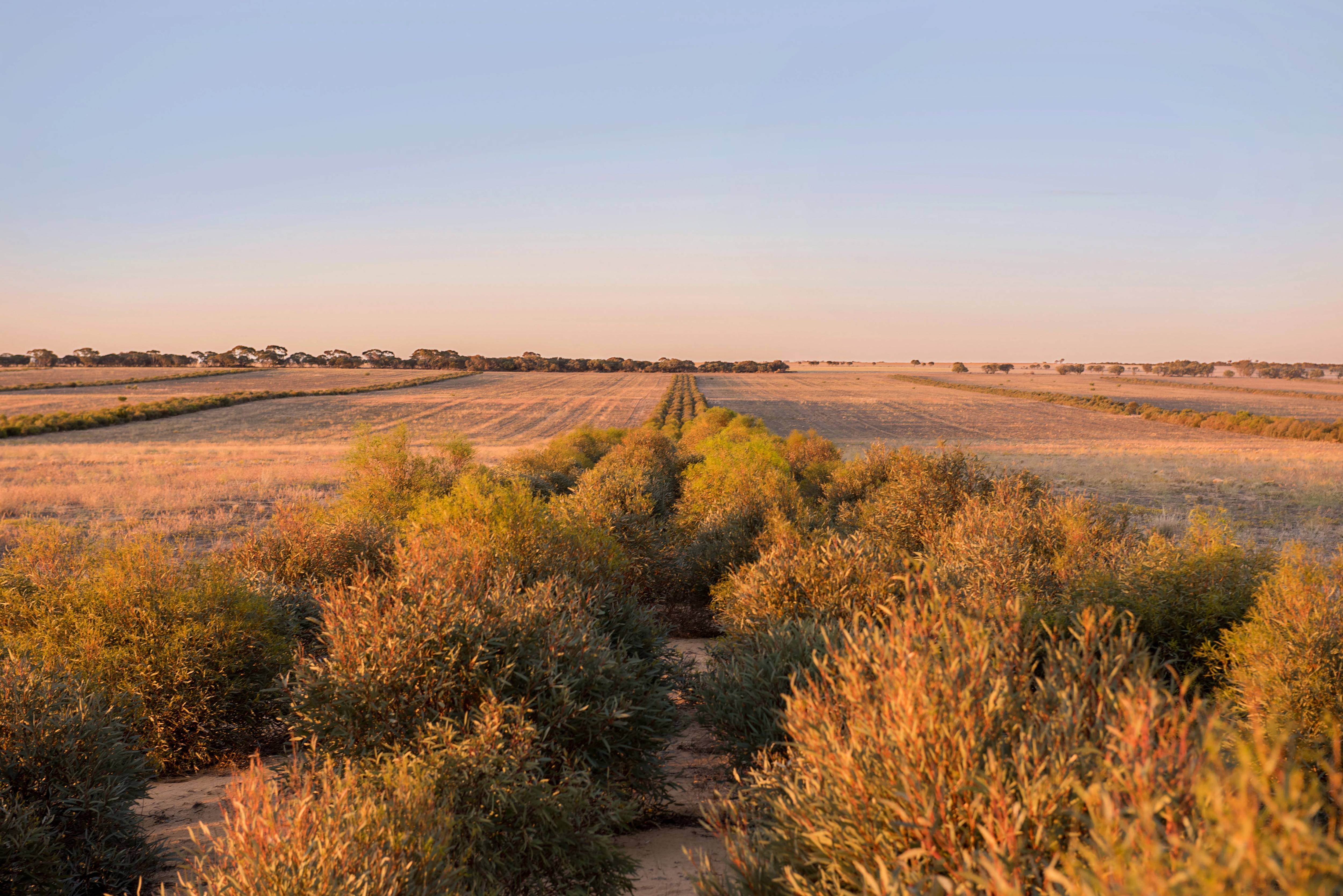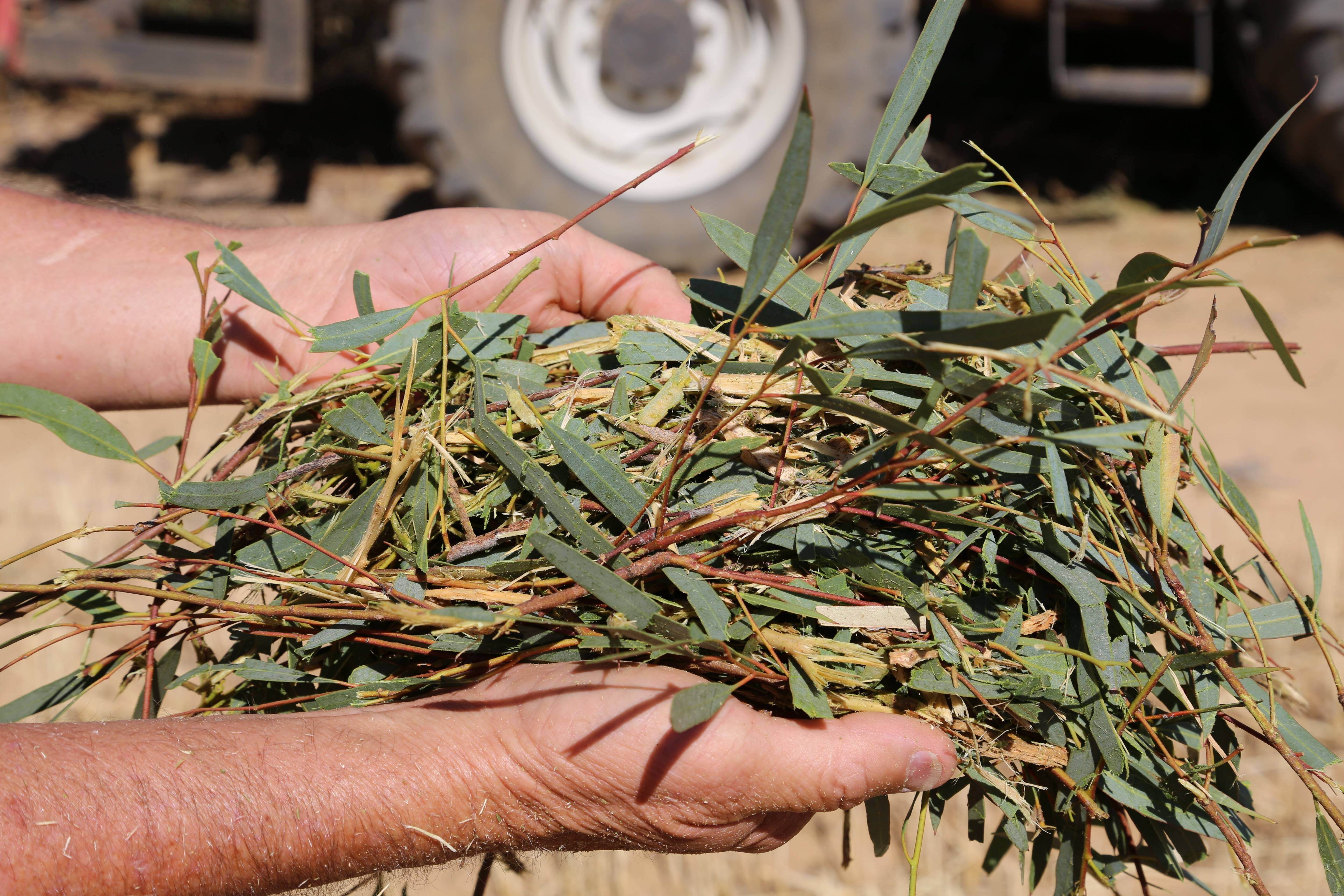Coppicing is a sustainable tree harvesting and land management technique that has been effectively used for thousands of years.[i]
Taking advantage of a tree’s natural growth cycle, coppicing involves cutting down the tree to just above its root collar, triggering the buds at the root to draw on stored sugars and grow rapidly.
Coppicing is an arborist method that allows trees to be harvested so they can regrow without having to be replanted. This also helps to maintain the natural fauna and flora of the surrounding ecosystem.
Coppicing of Eucalyptus kochii and Eucalyptus Yandee™ for Water Table Management
Coppicing is highly beneficial for the environment where our Eucalyptus kochii and Eucalyptus Yandee™ is grown. Coppiced trees put on more leaf biomass. This additional leaf biomass draws more groundwater than the leaves of established, mature trees. Young and/or coppiced Eucalyptus trees draw water using their deep tap root systems. This plant physiology helps to keep the water table down. While this might seem like a bad thing, this behavior is actually beneficial to the farmers who would otherwise have to contend with increased salinity in their soil brought to the surface by a rising water table. To learn more about this phenomenon, watch our VIDEO.
Beneficial Intercropping of Eucalyptus and Wheat
Our Eucalyptus trees are grown in an intercropping method between the long wheat paddocks in the Wheat Belt region of Western Australia. Following extensive research by Daniel Wildy, Ph.D., coppiced Eucalyptus tree management is also favorable to the farmers and their wheat crop.
The older trees develop horizontally spreading surface root systems. These shallow roots rob the wheat crops of nutrients and water and reduce farming yields. However, coppiced Eucalyptus trees maintain and rely heavily on their deeper root systems.[ii] Therefore, to keep the water table down, and to avoid encroachment of shallow root systems into the wheat crops, it is important for the Eucalyptus trees to be coppiced.
Communication of this research by Dan Wildy, PhD, helped farmers understand the broad benefits of keeping the Eucalyptus kochii trees in the ground, in spite of the lost cropping area, and developing the biomass base for the production of our Eucalyptus Oil.
Ultimately, this is a win:win situation for the wheat farmers, global essential oil markets, and the environment. The Eucalyptus Kochii and Yandee™ trees remain in the ground and the farmers maintain healthy land and get a small return on the collected biomass.
[i] Geoffrey Stanford, in Agriculture and Energy, 1977
[ii] Wildy, D.T., Pate, J.S. & Bartle, J.R. Budgets of water use by Eucalyptus kochii tree belts in the semi-arid wheatbelt of Western Australia. Plant and Soil 262, 129–149 (2004). https://doi.org/10.1023/B:PLSO.0000037058.85572.ba



No Comment